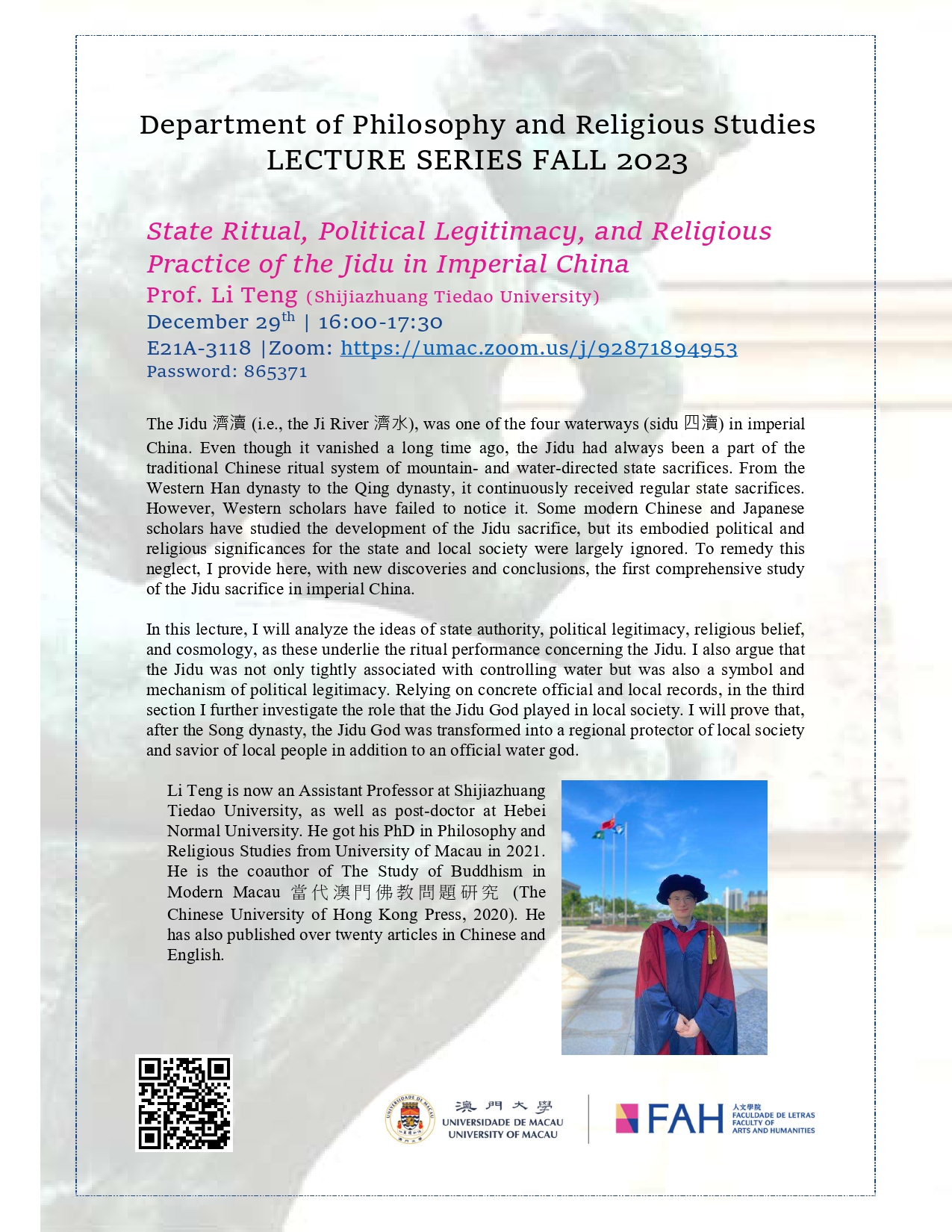

FAH/DPHIL Lecture Series – “State Ritual, Political Legitimacy, and Religious Practice of the Jidu in Imperial China” by Prof. Li Teng, Shijiazhuang Tiedao University, China
2023-12-29 @ 4:00 pm ~ 5:30 pm
Zoom: https://umac.zoom.us/j/92871894953
Password: 865371
Abstract
The Jidu 濟瀆 (i.e., the Ji River 濟水), was one of the four waterways (sidu 四瀆) in imperial China. Even though it vanished a long time ago, the Jidu had always been a part of the traditional Chinese ritual system of mountain- and water-directed state sacrifices. From the Western Han dynasty to the Qing dynasty, it continuously received regular state sacrifices. However, Western scholars have failed to notice it. Some modern Chinese and Japanese scholars have studied the development of the Jidu sacrifice, but its embodied political and religious significances for the state and local society were largely ignored. To remedy this neglect, I provide here, with new discoveries and conclusions, the first comprehensive study of the Jidu sacrifice in imperial China.
In this lecture, I will analyze the ideas of state authority, political legitimacy, religious belief, and cosmology, as these underlie the ritual performance concerning the Jidu. I also argue that the Jidu was not only tightly associated with controlling water but was also a symbol and mechanism of political legitimacy. Relying on concrete official and local records, in the third section I further investigate the role that the Jidu God played in local society. I will prove that, after the Song dynasty, the Jidu God was transformed into a regional protector of local society and savior of local people in addition to an official water god.
Bio
Li Teng is now an Assistant Professor at Shijiazhuang Tiedao University, as well as post-doctor at Hebei Normal University. He got his PhD in Philosophy and Religious Studies from University of Macau in 2021. He is the coauthor of The Study of Buddhism in Modern Macau 當代澳門佛教問題研究 (The Chinese University of Hong Kong Press, 2020). He has also published over twenty articles in Chinese and English.

